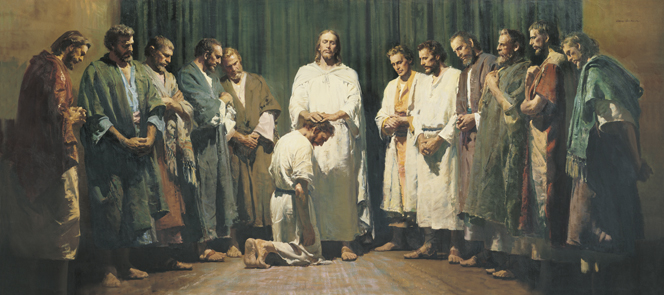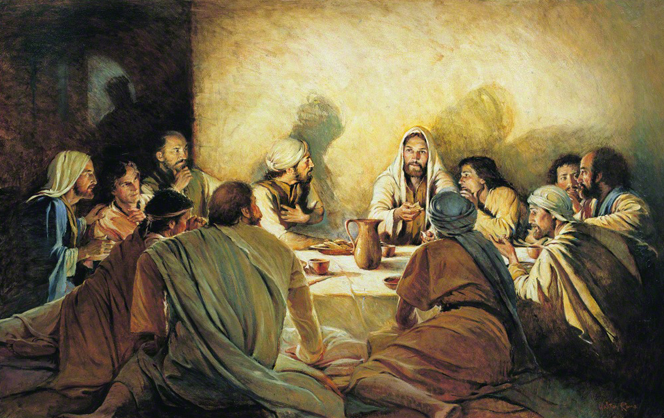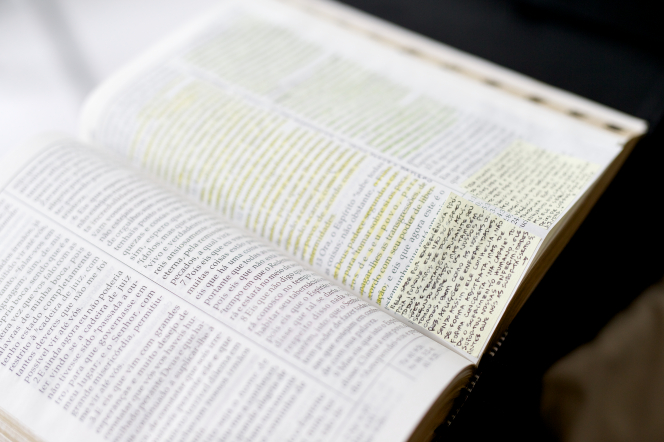Despite writing one of the four main gospels of the New Testament, little is known about the apostle Matthew. His book is quoted frequently, but the man himself is seldom discussed. This is a shame. His humble Christ-like nature makes him one of the unsung heroes of the Church.
Who Was Matthew?
To provide context to one of the most mysterious yet famous figures in the Bible, it’s important to note the political climate. During New Testament times, the Roman government held the Jews under an iron thumb, and publicans were the tax collectors who worked for the oppressive system. As such, they were ardently despised by the Jews. Any Jew who became a publican was considered a traitor to the faith and culture. So notorious were the publicans that of the 22 times that they are mentioned in the New Testament, at least half put them in a bad light and/or group them with sinners, harlots, or heathens. They were their own category of evil.
From this hated occupation came the apostle Matthew, also called Levi. Indeed, Jesus called Matthew to follow while the latter was in the middle of doing his job. Immediately, Matthew “left all” and obeyed.
What Set Him Apart?

Christ Ordaining the Apostles (Christ Ordaining the Twelve Apostles), by Harry Anderson. Courtesy of the LDS Media Library.
As far as we know, the other apostles hailed from lowlier vocations. Peter, Andrew, James, and John, of course, were fishermen. Matthew was likely alone in his more politically prestigious background. On top of enduring the derision of his Jewish peers, he was present for at least three instances in which the Lord Himself negatively generalized publicans. Although the Lord pointed out that some publicans may be more righteous than the Pharisees, He nevertheless implied their status as horrendous sinners by making such a comparison. In justifying His dinner with “publicans and sinners” by explaining that He was a physician for the sick, He also admitted that He considered the publicans among the most spiritually infirm.
Each of the instances in which the Lord spoke of publicans with low regard was recorded in the gospel that Matthew himself wrote. In fact, his writings rival only Luke’s regarding the number of times that publicans are brought up. On the other hand, there is no record of Matthew ever interrupting the Lord to say that not all publicans are that bad. He didn’t try to defend himself or anyone else in his line of work. There’s no evidence that his ego was wounded. Not even in Matthew’s own gospel exists a hint of his discontent.
The Life-Changing Question
When Jesus told His disciples that one of them would betray Him, they all asked, “Is it I?”—Matthew included. Surely, however, it was not the first time Matthew had to say these words. It seems we can assume that he simply nodded and accepted the Lord’s criticism of the people in his line of work, focusing less on taking personal offense and more on asking himself, “Is it I?” That is, “Am I part of the problem that the Lord is describing? How can I rise above it?”

In Remembrance of Me, by Walter Rane. Courtesy of the LDS Media Library. This painting depicts Christ’s last supper before His crucifixion, the scene in which His apostles all wondered aloud if they would be the ones to betray Him.
Later, Matthew penned the book that became the first of the four gospels included in most versions of the Bible. This man, who was rejected by his fellow Jews solely for his profession, is known for having written specifically with the Jews in mind, mentioning numerous references to Old Testament prophecies in order to convince his audience that Jesus had fulfilled them. Like his Master, Matthew was ferociously hated by his own people; however, also like his Master, Matthew’s response to such hatred was to reach out with all his power to save them.
A Leader We Should Follow
Matthew endured constant and vicious criticism for being a publican, but he used it to become one of the most influential representatives of the Lord the world has known. He should be an inspiration to everyone who has ever felt ostracized, negatively generalized, or unfairly singled out, as well as those who are quicker to defend their sins than they are to abandon them. When Matthew the publican chose time and time again to ask, “Is it I?”—that’s when he became Matthew the Apostle.
About Ashley Morales
Frequently whimsical and overly optimistic about how much time it will take to do things, Ashley Morales is deeply passionate about the gospel and all kinds of creativity. Her hobbies include philosophically analyzing nearly every book, play, video game, and movie that she consumes, writing music and short stories, promising herself that she will finish writing her novels, going to sleep too late, eating foods she's never tried, putting off cleaning her house, browsing Zillow, spending as much quality time as possible with her wonderful husband, trying to be a good mother to her fantastic children, and never finding the balance between saying too much and too little. One day, she hopes to leave a positive mark on the world and visit every continent (except Antarctica) with her family.
Twitter •


 Watch a video about the restoration of the gospel on lds.org
Watch a video about the restoration of the gospel on lds.org
I pray and ask my father in heaven to give me the spirit of courage to withstand every trials and difficulties and always have His spirit to be with me to stand everywhere He will want to and defend the restored gospel of Jesus Christ…
I know these things to be true.